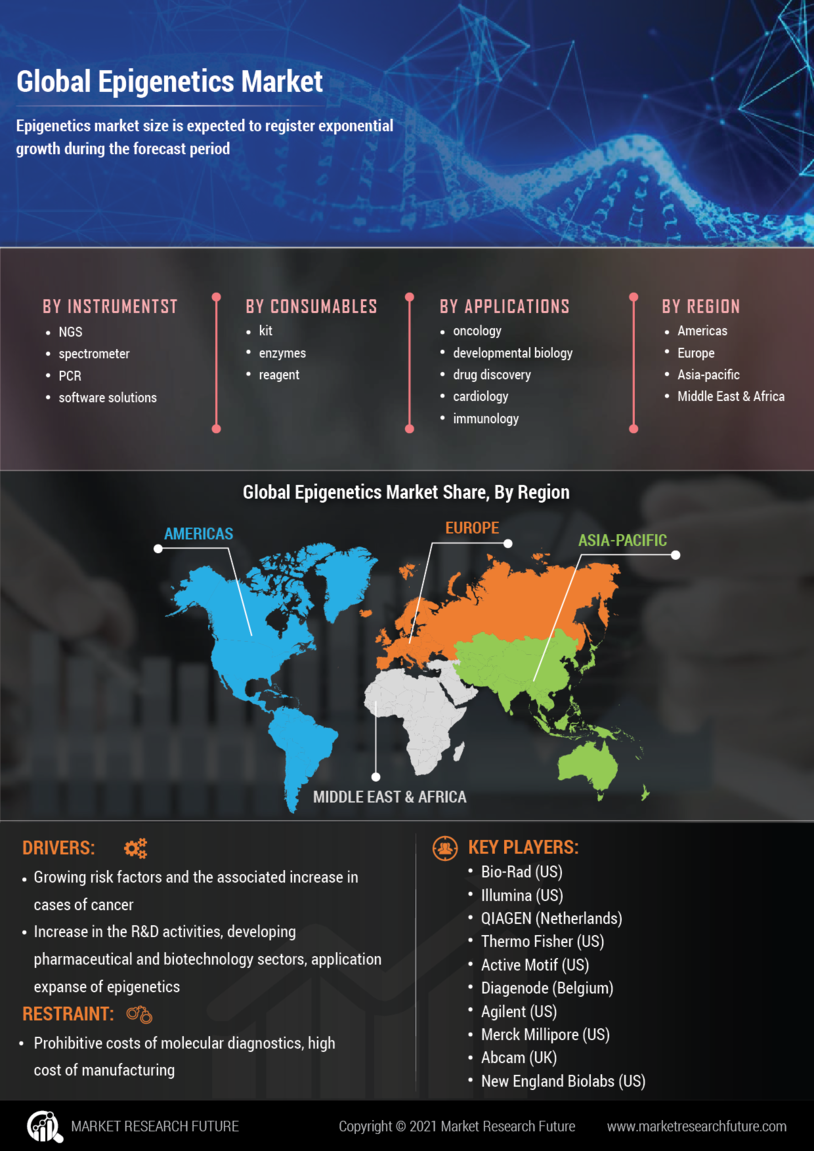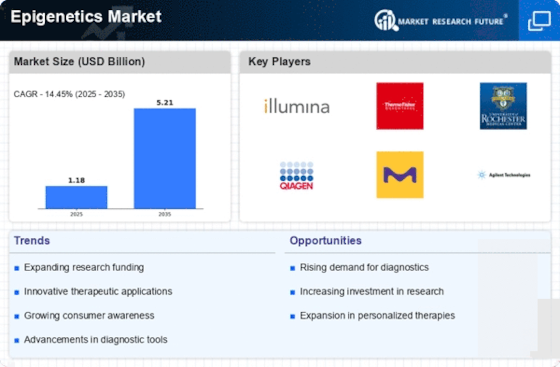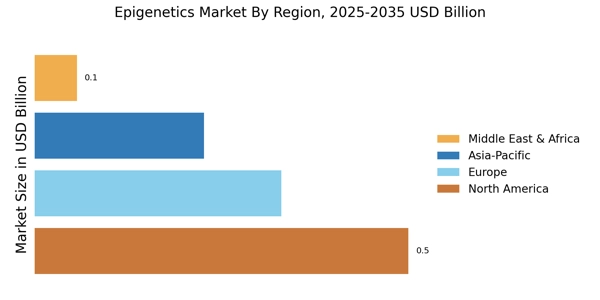Rising Prevalence of Chronic Diseases
The rising prevalence of chronic diseases is a critical driver influencing the Epigenetics Market. Conditions such as cancer, diabetes, and cardiovascular diseases are increasingly being linked to epigenetic alterations. As the global burden of these diseases escalates, there is a growing emphasis on understanding the underlying epigenetic mechanisms. This trend has led to a surge in research initiatives aimed at exploring epigenetic biomarkers for early diagnosis and targeted therapies. The market for epigenetic diagnostics is projected to grow significantly, with estimates suggesting a compound annual growth rate of over 15% in the coming years. Consequently, the Epigenetics Market is expected to expand as healthcare providers seek innovative solutions to combat the rising tide of chronic diseases.
Growing Demand for Epigenetic Research
The increasing demand for epigenetic research is a pivotal driver in the Epigenetics Market. As researchers delve deeper into the complexities of gene regulation, the need for innovative tools and methodologies has surged. This demand is reflected in the rising investments in research and development, with funding for epigenetic studies reaching approximately 1.5 billion dollars in recent years. The focus on understanding epigenetic mechanisms in diseases such as cancer and neurological disorders has catalyzed this growth. Consequently, academic institutions and biotechnology firms are collaborating to advance epigenetic research, thereby expanding the market landscape. The Epigenetics Market is poised for substantial growth as new discoveries pave the way for novel therapeutic approaches and diagnostic tools.
Growing Interest in Personalized Medicine
The growing interest in personalized medicine is a transformative driver within the Epigenetics Market. As healthcare shifts towards more individualized treatment approaches, the role of epigenetics in tailoring therapies to specific patient profiles becomes increasingly apparent. Personalized medicine leverages genetic and epigenetic information to optimize treatment efficacy and minimize adverse effects. The market for personalized medicine is expected to exceed 2 trillion dollars by 2030, with epigenetic insights playing a crucial role in this evolution. This trend is fostering collaborations between academic institutions, healthcare providers, and biotechnology firms to develop epigenetic-based therapies. The Epigenetics Market is likely to experience robust growth as the demand for personalized treatment options continues to rise, ultimately enhancing patient care and outcomes.
Increased Application in Drug Development
The application of epigenetics in drug development is transforming the pharmaceutical landscape, serving as a significant driver in the Epigenetics Market. Pharmaceutical companies are increasingly recognizing the potential of epigenetic modifications in drug discovery and development. It is estimated that over 30% of new drug candidates are now being evaluated for their epigenetic targets. This shift is largely due to the realization that epigenetic factors play a crucial role in disease progression and treatment response. As a result, the integration of epigenetic insights into drug development pipelines is expected to enhance the efficacy of therapies, leading to improved patient outcomes. The Epigenetics Market is likely to witness a surge in partnerships between biotech firms and pharmaceutical companies, aimed at harnessing epigenetic mechanisms for innovative drug solutions.
Technological Advancements in Epigenetic Analysis
Technological advancements in epigenetic analysis are propelling the growth of the Epigenetics Market. Innovations in sequencing technologies, such as next-generation sequencing and CRISPR-based methods, have revolutionized the ability to study epigenetic modifications at an unprecedented scale. These advancements enable researchers to conduct comprehensive analyses of epigenetic changes, facilitating a deeper understanding of gene regulation. The market for epigenetic analysis tools is projected to reach approximately 2 billion dollars by 2026, driven by the demand for high-throughput and cost-effective solutions. As these technologies continue to evolve, they are likely to enhance the capabilities of researchers and clinicians alike, thereby expanding the applications of epigenetics in various fields, including oncology and personalized medicine. The Epigenetics Market stands to benefit significantly from these technological breakthroughs.


















